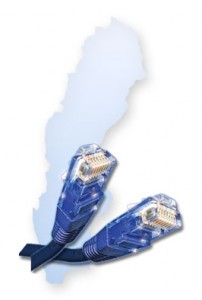Costa Rica News – We all know how terrible the internet and cable services in Costa Rica are. In the last hour alone, my internet stopped working 4 times. The outages are usually brief, but annoying nonetheless.
 Yesterday my cable stopped working 12 times over a 3 minute period. I didn’t even think anything of it, because it’s so normal. The rest of the day it worked fine. You can’t let these things get to you because, for most people, life goes on, even without reliable services. It’s not the most important thing. For businesses, the story is different.
Yesterday my cable stopped working 12 times over a 3 minute period. I didn’t even think anything of it, because it’s so normal. The rest of the day it worked fine. You can’t let these things get to you because, for most people, life goes on, even without reliable services. It’s not the most important thing. For businesses, the story is different.
When Google went down last week 40% of the traffic on the Internet went down for 3 to 5 minutes, so the Internet going down for businesses in Costa Rica causes revenue lost each and every day.
Costa Rica is one of the more modern countries in the region, second only to Panama. There are many businesses here that need a more reliable internet service in order to be more successful. The government has had an “ah-ha!” moment, realizing that better internet leads to better financial success for businesses which leads to more taxes for them. Costa Rica’s Board of Telecommunications (Sutel) certified VíaEuropa, a Swedish company, to operate a new internet network throughout the country. This network will be “ultra-fast.”
It’s not the first promise we have heard of fast or reliable internet, but it seems more possible this time! The project already successfully launched in other parts of the world earlier this year. VíaEuropa’s network will be neutral and in alliance with Radiografica Costarricense (RACSA). The business model will create an optic fiber network that is 10Mbps, which allows you to upload and download at the same speed. The network could be used by both internet and TV providers.
The last battle that this group will have to overcome is the fact that ICE and RACSA will most likely try to sabotage any competition coming into the telecommunications market in Costa Rica. Good luck with that “ultra-fast” Internet dream becoming a reality. But at least the government of Costa Rica has finally realized that relying on its precious ICE to provide any kind of good service for Internet is no longer an option.

